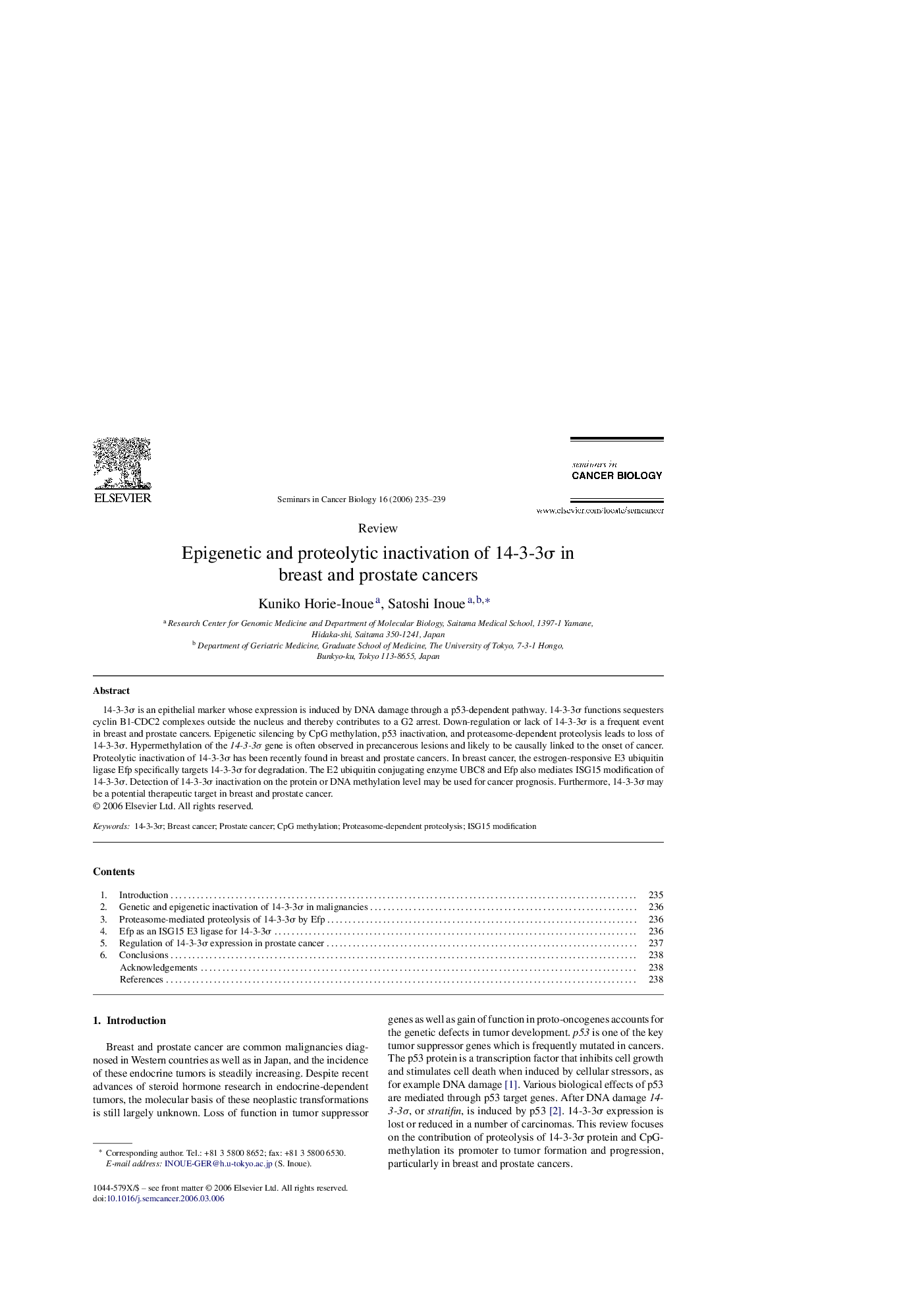| Article ID | Journal | Published Year | Pages | File Type |
|---|---|---|---|---|
| 2023938 | Seminars in Cancer Biology | 2006 | 5 Pages |
14-3-3σ is an epithelial marker whose expression is induced by DNA damage through a p53-dependent pathway. 14-3-3σ functions sequesters cyclin B1-CDC2 complexes outside the nucleus and thereby contributes to a G2 arrest. Down-regulation or lack of 14-3-3σ is a frequent event in breast and prostate cancers. Epigenetic silencing by CpG methylation, p53 inactivation, and proteasome-dependent proteolysis leads to loss of 14-3-3σ. Hypermethylation of the 14-3-3σ gene is often observed in precancerous lesions and likely to be causally linked to the onset of cancer. Proteolytic inactivation of 14-3-3σ has been recently found in breast and prostate cancers. In breast cancer, the estrogen-responsive E3 ubiquitin ligase Efp specifically targets 14-3-3σ for degradation. The E2 ubiquitin conjugating enzyme UBC8 and Efp also mediates ISG15 modification of 14-3-3σ. Detection of 14-3-3σ inactivation on the protein or DNA methylation level may be used for cancer prognosis. Furthermore, 14-3-3σ may be a potential therapeutic target in breast and prostate cancer.
